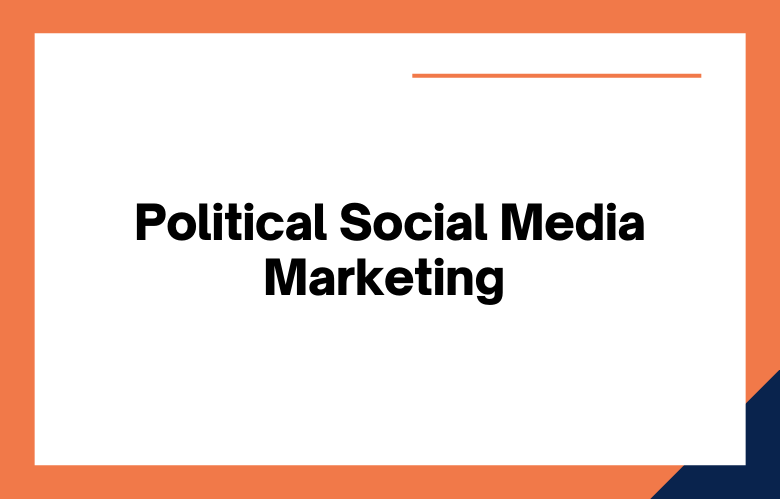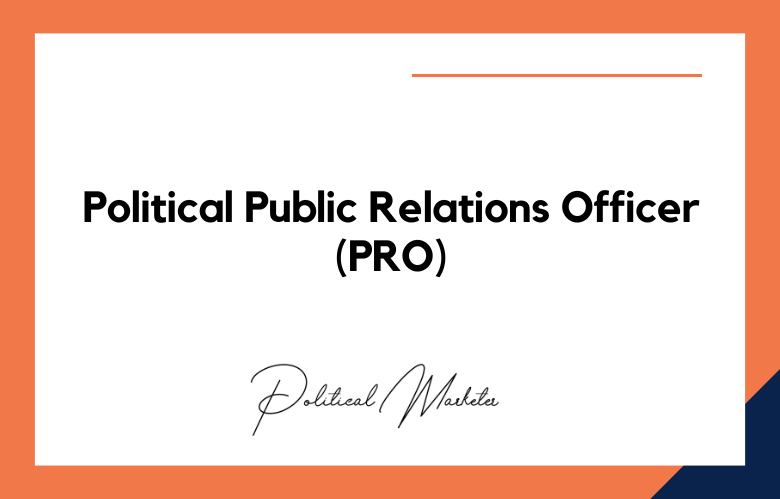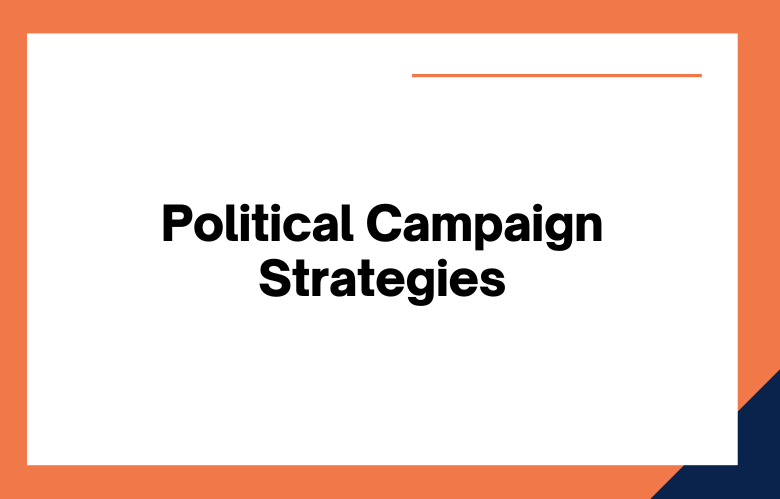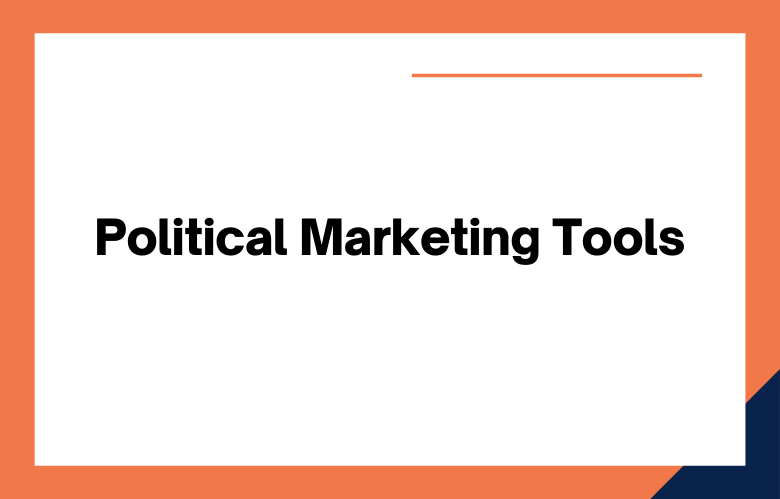Social media marketing is a crucial part of any company’s digital strategy. It can be tough to be on top of all the changes in technology and social media platforms, so having an expert opinion will help keep your messaging relevant and effective. In 2024, we predict that:
- Social Media Marketing will continue to grow in influence as more people use it for political advocacy and activism.
- Facebook marketing will become less critical because younger generations favor other networks like Instagram or Snapchat.
What are the political and social media marketing predictions for 2024? Social Media has always affected politics, but it’s more pronounced in recent years.
Political Social Media Marketing Predictions and Trends in 2024
- Social media sites will focus on providing a space for people to share their thoughts and feelings.
- More social media users will engage in political discussions through posts, videos, and memes.
- Political parties will have official accounts that are used to communicate with voters.
- Political and social media marketing will be more about what you say than who you are
- Social media will be the primary form of communication for politicians, with more than 75% of posts being made on Facebook and Twitter.
- The average politician will have over 1 million followers across social media accounts.
- Politicians will use paid advertising to reach a wider audience- targeting specific demographic groups or geographic locations to increase engagement.
- Political campaigns increasingly rely on influencers, especially those famous on Instagram, as surrogates for traditional campaign ads.
- Social media will be the most influential medium for political campaigns
- Campaigns will spend more money on social media advertising than any other form of marketing
- More people will use ad blockers to avoid being targeted by ads, so politicians and marketers are expected to find new ways to engage with audiences
- Political parties have already begun targeting specific demographics through social media channels
- Facebook and Twitter will continue to dominate social media, but Snapchat, Instagram, and YouTube are gaining ground
- Political parties will use social media for more than just fundraising
- More people will get involved with politics because of online activism
- Facebook will no longer be a social media platform but rather a news and information website
- More people will use Twitter for political purposes than ever before
- The majority of people will be using social media to stay current on the news
- Social media platforms such as Facebook and Twitter will continue to play a significant role in political campaigns
- AI and Machine Learning will become more prevalent in marketing, leading to personalized ads based on demographics or interests
- More Political parties will begin hiring influencers for their party and cader.
- Social media will be used to promote and endorse candidates
- Political campaigns will use social media to target demographics such as millennials.
- Facebook and Twitter will continue to dominate the political landscape on social media while other platforms like Instagram grow in popularity.
- Social media will be a vital political marketing tool
- Political Parties will use social media influencers to promote their party
- More Political Parties will start using chatbots on social media
- Social media will begin to use AI and machine learning to predict what you want to see on your feed
- The rise of live-streaming apps like YouTube and Facebook Live will make it easier for people who don’t have much money or resources to get their message out there.
- People will turn away from mainstream media sources in favor of social networks because they’ll feel more trustworthy.
- Political Social Media Marketing is going to be a big business in 2024
- Facebook will still be the most popular social media platform but with increased competition from other platforms like LinkedIn and Twitter
- The number of people using Instagram for political marketing is predicted to increase by 5% every year
- More women are expected to enter the field of political marketing in 2024
- The increasing use of artificial intelligence in campaigns will fuel more creative approaches
- Political candidates are more likely to use social media in the 2020s
- Social media users will be able to see how their words and actions affect other people’s lives, which could cause a shift in how they express themselves online
- People will be less inclined to share personal information on social media because of privacy concerns
- More people will start using ad blockers- this means that political content may not reach as many people
- Social media companies will be held liable for the content published on their platforms
- Social media marketing will become more expensive due to increased regulation and oversight
- The average age of a social media user is expected to rise, which means that younger generations will have less influence than they did in previous years
- Technology will play an increasingly important role in how we communicate with one another
- Facebook will be the largest social media platform in 2024, but it won’t have as much reach as it did in 2018
- Instagram will overtake Snapchat and become the second-largest social media platform by 2024
- Twitter’s growth rate is decreasing, and it may face an existential crisis in 2024
- The number of people who use Reddit will increase
- Twitter will continue to be a valuable platform for politicians and marketers, but its influence may decrease in favor of other platforms like Facebook or Instagram.
- People will get more creative with their social media marketing campaigns- expect more memes, gifs, and videos from candidates.
- Candidates will also use influencer marketing more often, as online celebrities have a large social media following.
- With new platforms emerging, the social media landscape will continue to change and grow.
- Social media marketing will become an increasingly complex field of study
- Social media is used more for political campaigning
- People are using social media to organize protests and demonstrations
- Political advertising will be banned on social media sites, but people can still post their opinions about candidates
- There is a push for the government to regulate how much data companies like Facebook have access to about users
- There is an increase in “fake news” being shared by individuals on social media
- Increased engagement, a new form of marketing will emerge that targets specific demographics based on their personal preferences and interests
- By 2024, Facebook’s algorithm will have changed to adjust for these changes in marketing strategy- providing advertisers with the opportunity to target users who are likely to respond well to their messages
- Social Media will be the primary way to get information, with social media sites becoming more like newspapers
- The government will use social media to control people’s thoughts and opinions by monitoring posts for dissenters
- Social Media companies will have a lot of power because they can control what you see on your feed
- People who oppose the government may start using Virtual Reality as a protest.
Conclusion
As social media evolves, the way politicians interact with voters will change. By 2024, we predict candidates will use video content more often and Facebook Lives streaming for announcements and speeches.
It’s also likely that Twitter followership numbers will decrease as people turn to other platforms like Reddit or Instagram, where they can get away from political posts without feeling overwhelmed.
Contact us today if you need the support to create a successful political campaign on social media in 2020 (or any year)!
Our team of experts would love to work with you to create an effective digital strategy explicitly tailored to your needs and goals – regardless of your budget.
Call: +91 9848321284
Email: [email protected]
What Are The Key Political Social Media Trends Emerging In Recent Campaigns?
Short-form video, live streams, AI-generated content, and influencer collaborations are among the most prominent trends shaping political outreach.
How Will AI Influence Political Social Media Marketing?
AI will personalize voter engagement, automate content creation, analyze sentiment in real time, and optimize ad placements for better performance.
Are Political Influencers Becoming More Relevant?
Yes, micro-influencers and local voices are becoming powerful conduits for reaching niche communities and building credibility.
What Role Will Augmented Reality (AR) Play In Political Campaigns?
AR will be used for immersive storytelling—allowing voters to experience policy impacts or events virtually, enhancing message retention.
Is Livestreaming Still Effective For Political Campaigning?
Livestreaming remains a strong tool for real-time engagement, especially on platforms like Facebook, Instagram, and YouTube.
Will Ephemeral Content Continue To Drive Engagement?
Yes, Stories and Reels provide authentic, time-sensitive messaging that performs well with younger voters and encourages repeat visits.
Can Politicians Use Social Listening For Strategy Refinement?
Absolutely. Social listening tools track public sentiment, issue salience, and opposition narratives, enabling data-backed decisions.
How Important Will Personalized Content Be For Voter Targeting?
Hyper-personalized messages will be critical to capturing fragmented attention spans and appealing to unique voter segments.
What Platforms Are Expected To Dominate Political Marketing?
Instagram, X (formerly Twitter), YouTube, and emerging platforms like Threads will continue to dominate due to their visual and viral nature.
How Will Generative AI Shape Social Media Content Strategy?
It will streamline content production—enabling campaigns to produce text, video, and image assets quickly while adapting tone to audience segments.
Are Meme Campaigns A Serious Political Tool Now?
Yes, memes serve as digestible political messages, ideal for youth outreach and cultural relevance, when used thoughtfully.
How Can Data Privacy Affect Social Media Campaigning?
With increasing regulations and public awareness, campaigns must balance targeting precision with transparent and ethical data use.
What Are The Risks Of Deepfakes In Political Marketing?
Deepfakes can mislead voters and damage reputations. Campaigns must implement counter-disinformation strategies using AI-based detection tools.
Is TikTok A Viable Platform For Political Messaging?
Despite some regional restrictions, TikTok’s high engagement makes it valuable for reaching younger, mobile-first voters with concise messaging.
How Will Video-First Strategies Evolve?
Campaigns will invest more in vertical, captioned, and AI-edited videos to improve accessibility and algorithmic visibility.
What Is Social Commerce And Its Role In Politics?
Social commerce features (like in-app donations or merchandise sales) will support fundraising and community building.
Will Sentiment Analysis Become More Granular?
Yes, advanced models will detect tone shifts across demographics, regions, and issues to tailor campaign messages in real time.
How Can Campaigns Use Community Groups For Voter Engagement?
Private groups on platforms like WhatsApp, Telegram, or Facebook will become essential for organizing volunteers and mobilizing loyal voter bases.
Are Chatbots Going Mainstream In Political Campaigns?
Yes, AI chatbots will handle FAQs, voter registration support, and information dissemination with 24/7 availability.
How Can Politicians Future-Proof Their Social Media Strategy?
By adopting AI tools, staying updated on platform algorithm changes, and continuously testing content formats to adapt to evolving voter behavior.










